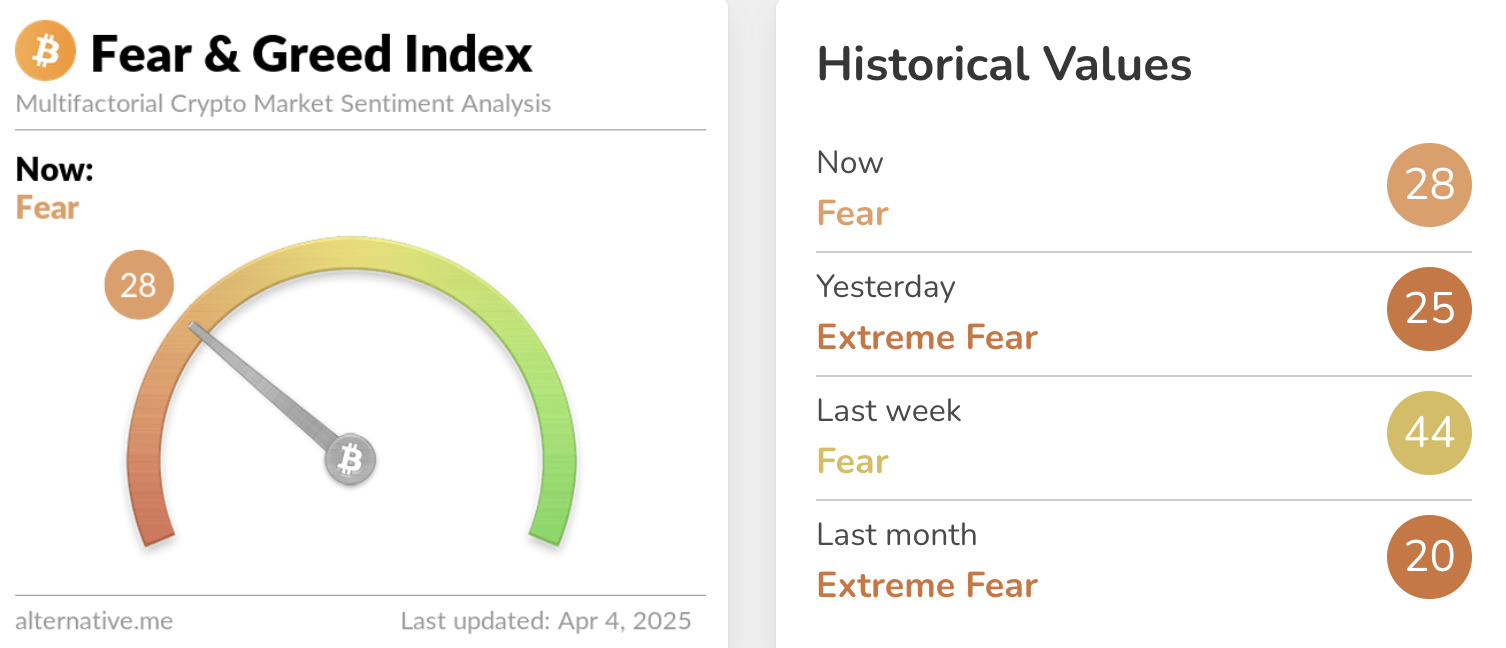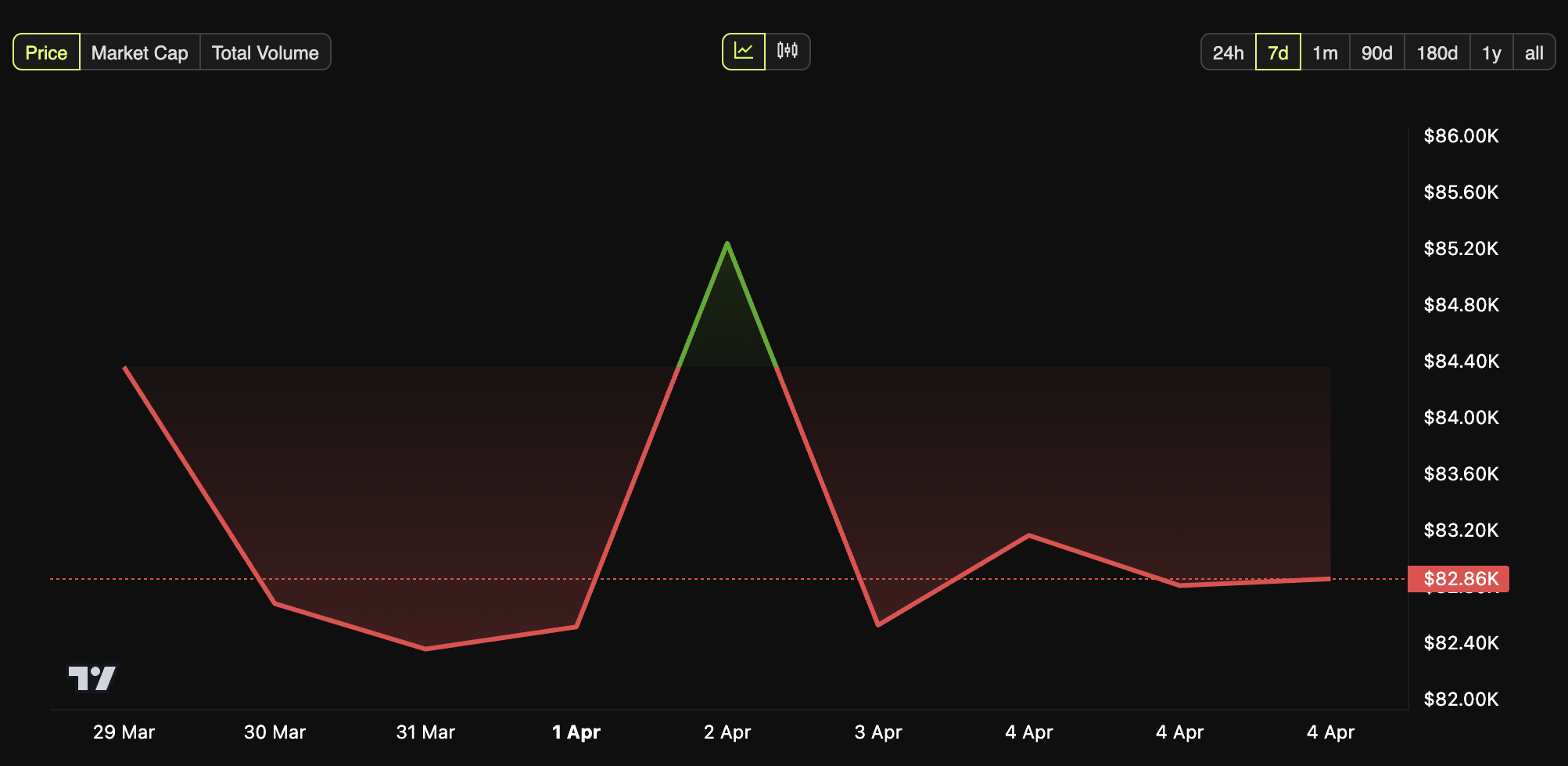The cryptocurrency Fear and Greed Index dropped to 25 yesterday, indicating "extreme fear" in the cryptocurrency market. However, one analyst suggests that the current panic may be exaggerated by recent bias.
This occurred while Bitcoin was experiencing market volatility triggered by broad macroeconomic conditions. Major cryptocurrencies have declined by 11.4% year-to-date, reflecting widespread sentiment of fear and uncertainty.
Recent Bias, Fueling Bitcoin Price Fear?
In a recent X (formerly Twitter) post, analyst Lark Davis highlighted an interesting trend in the Crypto Fear and Greed Index. This sentiment indicator measures market sentiment from 0 (extreme fear) to 100 (extreme greed).
On April 3rd, the index plummeted to 25, indicating increased anxiety among investors, despite Bitcoin trading at around $80,000. In fact, a recent value of 28 also demonstrated significant fear among market participants.

Nevertheless, according to Davis, the sentiment was inappropriate when considering Bitcoin's price performance. He noted that the index's decline contrasts with the market situation six months ago. Despite Bitcoin trading at $65,000, the index showed a neutral reading at that time.
"This is what is called 'recency bias', which can be utilized," he wrote.
Notably, recency bias refers to the tendency of investors or traders to prioritize recent events or information when making decisions. It tends to ignore long-term trends or data. This psychological bias often leads to overreactions to short-term market movements, such as sudden price surges or crashes.
"So we're seeing a higher fear reading today at $80,000 compared to yesterday's $65,000," Davis mentioned.
He suggested that the fear seen in the market is not entirely justified and that reactions to short-term fluctuations are often more extreme than necessary.
This aligns with Bitcoin continuing to experience volatility amid fears of Trump's tariff plans and potential economic recession. While relatively stable compared to traditional markets, Bitcoin's value decline has still raised questions about its stability and long-term potential.
Particularly, Michael Saylor, chairman of Strategy (formerly MicroStrategy), emphasized that short-term volatility does not reflect Bitcoin's long-term potential.
"Bitcoin is the most volatile because it is the most useful," he said.
Saylor explained that Bitcoin's volatility is primarily due to liquidity and 24/7 availability. This means it is more vulnerable to sharp sell-offs during market panics. However, Saylor reiterated that while Bitcoin may behave like a risk asset in the short term, its long-term value remains unaffected by this volatility, and its role as a store of value is strengthened.
Meanwhile, Arthur Hayes, former CEO of BitMEX, provided another perspective on the current market situation.
"Some of you are scared, but I like tariffs," Hayes said.
According to Hayes, global economic imbalances will eventually be corrected. While short-term market pain is inevitable, Hayes predicts that the solution is likely to involve printing more money, which he sees as favorable for Bitcoin.
"The dollar is weakening as foreigners sell US tech stocks and take money back home. This is good for Bitcoin and gold in the medium term," he predicted.
His statement aligns with BeInCrypto's recent report on the inverse correlation between the US Dollar Index (DXY) and Bitcoin. Therefore, a decline in the former could benefit the latter.

Currently, Bitcoin continues to show slight losses. It has declined 4.5% over the past week. Meanwhile, the coin lost 1.0% of its value over the past day. At the time of writing, Bitcoin was trading at $82,855.






